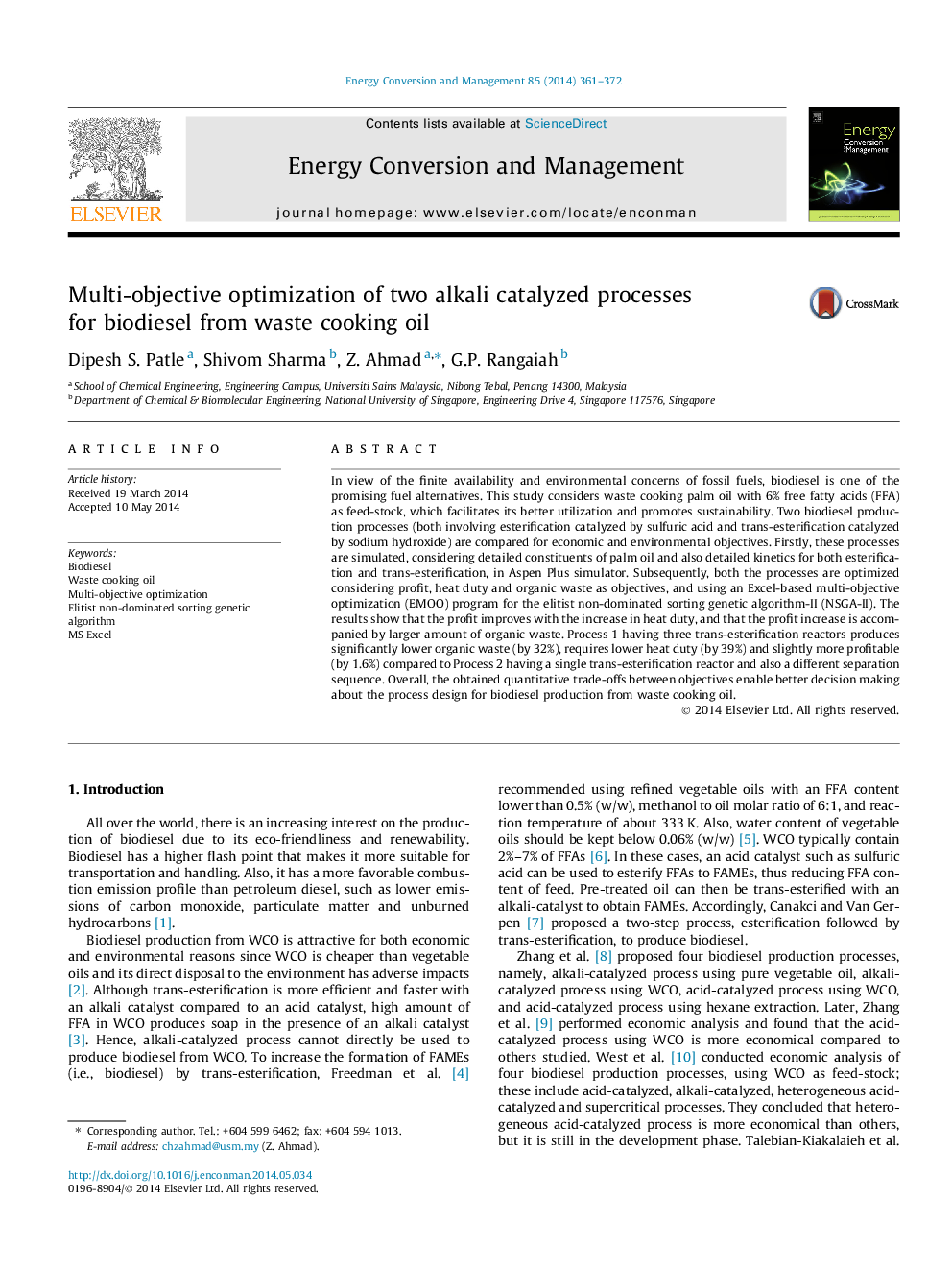| Article ID | Journal | Published Year | Pages | File Type |
|---|---|---|---|---|
| 7164738 | Energy Conversion and Management | 2014 | 12 Pages |
Abstract
In view of the finite availability and environmental concerns of fossil fuels, biodiesel is one of the promising fuel alternatives. This study considers waste cooking palm oil with 6% free fatty acids (FFA) as feed-stock, which facilitates its better utilization and promotes sustainability. Two biodiesel production processes (both involving esterification catalyzed by sulfuric acid and trans-esterification catalyzed by sodium hydroxide) are compared for economic and environmental objectives. Firstly, these processes are simulated, considering detailed constituents of palm oil and also detailed kinetics for both esterification and trans-esterification, in Aspen Plus simulator. Subsequently, both the processes are optimized considering profit, heat duty and organic waste as objectives, and using an Excel-based multi-objective optimization (EMOO) program for the elitist non-dominated sorting genetic algorithm-II (NSGA-II). The results show that the profit improves with the increase in heat duty, and that the profit increase is accompanied by larger amount of organic waste. Process 1 having three trans-esterification reactors produces significantly lower organic waste (by 32%), requires lower heat duty (by 39%) and slightly more profitable (by 1.6%) compared to Process 2 having a single trans-esterification reactor and also a different separation sequence. Overall, the obtained quantitative trade-offs between objectives enable better decision making about the process design for biodiesel production from waste cooking oil.
Keywords
Related Topics
Physical Sciences and Engineering
Energy
Energy (General)
Authors
Dipesh S. Patle, Shivom Sharma, Z. Ahmad, G.P. Rangaiah,
